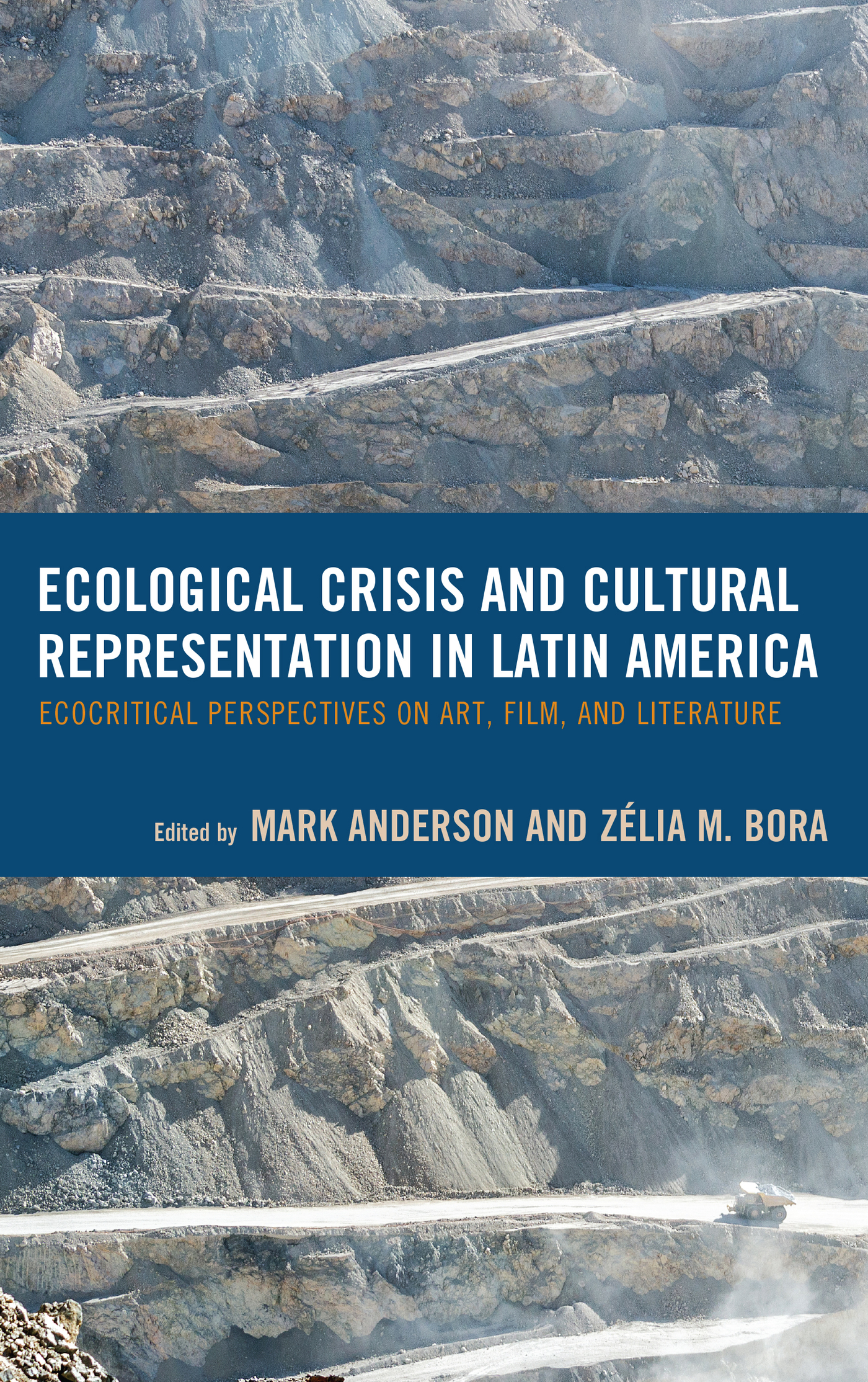Ecological Crisis and Cultural
Representation in Latin America
Ecocritical Theory and Practice
Series Editor: Douglas A. Vakoch, California Institute of Integral Studies, USA
Advisory Board:
Joni Adamson, Arizona State University, USA; Mageb Al-adwani, King Saud University, Saudi Arabia; Bruce Allen, Seisen University, Japan; Hannes Bergthaller, National Chung-Hsing University, Taiwan; Zlia Bora, Federal University of Paraba, Brazil; Izabel Brando, Federal University of Alagoas, Brazil; Byron Caminero-Santangelo, University of Kansas, USA; Jeffrey J. Cohen, George Washington University, USA; Simo Farias Almeida, Federal University of Roraima, Brazil; Julia Fiedorczuk, University of Warsaw, Poland; Camilo Gomides, University of Puerto RicoRio Piedras, Puerto Rico; Yves-Charles Grandjeat, Michel de Montaigne-Bordeaux 3 University, France; George Handley, Brigham Young University, USA; Isabel Hoving, Leiden University, The Netherlands; Idom Thomas Inyabri, University of Calabar, Nigeria; Serenella Iovino, University of Turin, Italy; Adrian Ivakhiv, University of Vermont, USA; Daniela Kato, Zhongnan University of Economics and Law, China; Petr Kopeck, University of Ostrava, Czech Republic; Mohammad Nasser Modoodi, Payame Noor University, Iran; Patrick Murphy, University of Central Florida, USA; Serpil Oppermann, Hacettepe University, Turkey; Rebecca Raglon, University of British Columbia, Canada; Anuradha Ramanujan, National University of Singapore, Singapore; Christian Schmitt-Kilb, University of Rostock, Germany; Marian Scholtmeijer, University of Northern British Columbia, Canada; Heike Schwarz, University of Augsburg, Germany; Murali Sivaramakrishnan, Pondicherry University, India; Scott Slovic, University of Idaho, USA; J. Etienne Terblanche, North-West University, South Africa; Julia Tofantuk, Tallinn University, Estonia; Jennifer Wawrzinek, Free University of Berlin, Germany; Cheng Xiangzhan, Shandong University, China; Yuki Masami, Kanazawa University, Japan; Hubert Zapf, University of Augsburg, Germany
Ecocritical Theory and Practice highlights innovative scholarship at the interface of literary/cultural studies and the environment, seeking to foster an ongoing dialogue between academics and environmental activists.
Recent Titles
Ecological Crisis and Cultural Representation in Latin America, edited by Mark Anderson and Zlia M. Bora
Ecocritical Approaches to Italian Culture and Literature: The Denatured Wild, edited by Pasquale Verdicchio
Coexistentialism and the Unbearable Intimacy of Ecological Emergency, by Sam Mickey
Disability and the Environment in American Literature: Toward an Ecosomatic Paradigm, edited by Matthew J.C. Cella
Ecological Crisis and Cultural
Representation in Latin America
Ecocritical Perspectives
on Art, Film, and Literature
Edited by
Mark Anderson and Zlia M. Bora
LEXINGTON BOOKS
Lanham Boulder New York London
Published by Lexington Books
An imprint of The Rowman & Littlefield Publishing Group, Inc.
4501 Forbes Boulevard, Suite 200, Lanham, Maryland 20706
www.rowman.com
Unit A, Whitacre Mews, 26-34 Stannary Street, London SE11 4AB
Copyright 2016 by Lexington Books
All rights reserved. No part of this book may be reproduced in any form or by any electronic or mechanical means, including information storage and retrieval systems, without written permission from the publisher, except by a reviewer who may quote passages in a review.
British Library Cataloguing in Publication Information Available
Library of Congress Cataloging-in-Publication Data Available
ISBN 978-1-4985-3095-8 (cloth : alk. paper)
ISBN 978-1-4985-3097-2 (pbk. : alk. paper)
ISBN 978-1-4985-3096-5 (electronic)
 TM The paper used in this publication meets the minimum requirements of American National Standard for Information Sciences Permanence of Paper for Printed Library Materials, ANSI/NISO Z39.48-1992.
TM The paper used in this publication meets the minimum requirements of American National Standard for Information Sciences Permanence of Paper for Printed Library Materials, ANSI/NISO Z39.48-1992.
Printed in the United States of America
In memory of Anthony Carrigan,
who inspired us as an ecocritic
and as a person
Introduction
Mark Anderson
The Dimensions of Crisis
Worldwide environmental crisis has become increasingly visible over the last few decades, driven home by dire warnings in the media from scientists regarding the current and future effects of global climate change. Concern about massive land cover change, habitat loss, species extinctions, and the end of nature as an alternative or equilibrium to industrial modernization has become widespread. In the year 2000, the unprecedented scope of anthropogenic environmental transformations that have occurred since the advent of the industrial revolution led scientists Paul Crutzen and Eugene Stoermer to publish their resounding, if initially surreptitious proposal for the designation of a new geological time period called the Anthropocene, a term intended to capture the central role of mankind in planetary geological and ecological processes since at least the eighteenth century (17).
Ecofeminists and postcolonial scholars have debated the accuracy of this characterization, noting that not all humanity is equally responsible for either the carbon emissions that have led to anthropogenic climate change, nor the terraforming activities that have wreaked havoc on environments around the planet. Despite grounding the concept in empirical evidence, Crutzen and Stoermers anachronistic wording exposes possible ethical failings in the proposal itself: that reference to mankind was bound to raise contentions about the gendered, racialized social and geopolitical structures that have underpinned these massive, global environmental transformations, not to mention the implicit anthropocentric negation of nonhuman agency in environmental history. For many, this degree of human agency represents an unmitigated ecological catastrophe; for others, the culmination of religious, social, or evolutionary destiny.
Ecological Crisis from Latin America
Objectively, there is undeniably an environmental crisis occurring on a planetary scale that has manifested itself in Latin America in unprecedented habitat loss, deforestation, species extinctions, land cover change due to the expansion of industrialized monoculture and mineral and hydrocarbon extraction, erosion, melting glaciers, environmental toxicity, and pollution in cities.
Furthermore, many of the extractive technologies and land management practices that have now been implemented globally were developed initially in and/or for Latin America during the colonial and postcolonial periods, from technologies for export agriculture and mining to specific methods of capital investment and liberal privatization. Likewise, the hollow frontier style of export agriculture developed in Latin America by industrial-scale coffee growers and transnational agricultural corporations such as the United Fruit Company has spread from Latin America to locations as far flung as Southeast Asia and Equatorial Africa. This form of plantation agriculture, which Miller compares to a blitzkrieg against environments, is characterized by the clear-cutting of peripheral tropical forests, the hasty implementation of industrialized plantations, the massive use of agrochemicals, and then decamping to new sites within a few decades to escape the spread of pathogens, rising toxicity, labor organization, and the exhaustion of soil nutrients (Miller 13135). In the late twentieth century, moreover, Latin America served as the laboratory for the neoliberal economic policies and extractive practices, often implemented violently through military dictatorship in the 1970s and 1980s, that have now taken hold globally. In this sense, the legacy of colonial extractivism has continued unabated from the sixteenth century until the present, with only brief and partial respites such as the period of widespread import substitution industrialization from the 1930 worldwide economic crisis up until World War II. By exporting its profits abroad, this colonial economy of extraction produces local poverty (as a reserve of cheap labor) and toxic bodies while it also impoverishes environments, depleting their resources, biodiversity, and cultural and moral value (Castro Herrera 2).

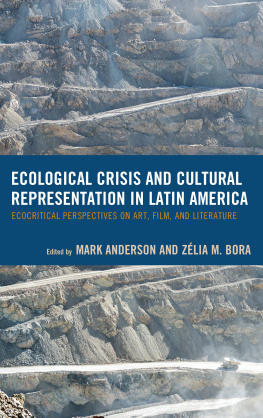

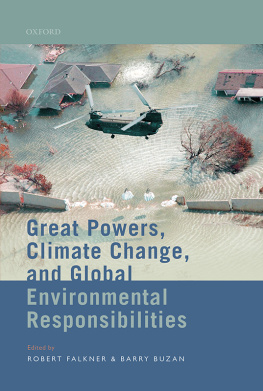
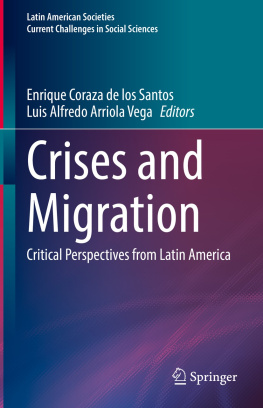
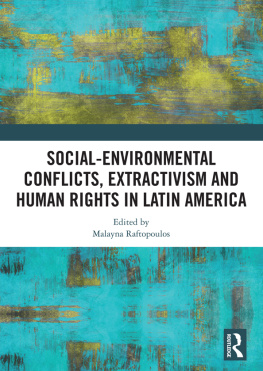
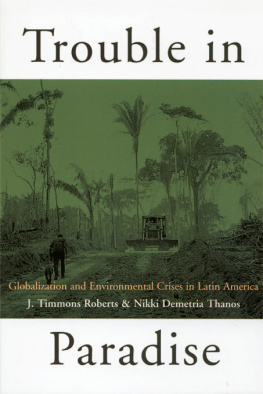
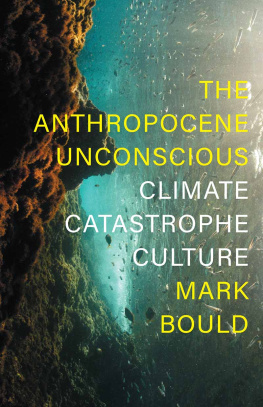
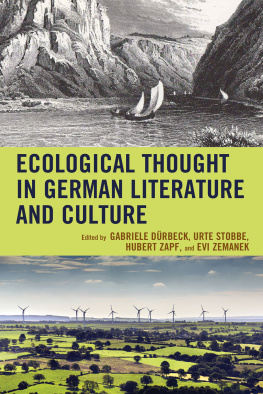
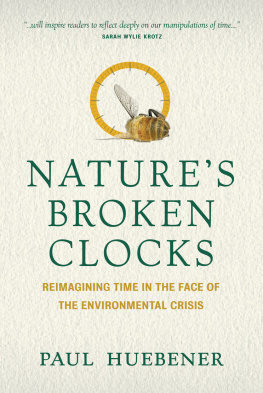
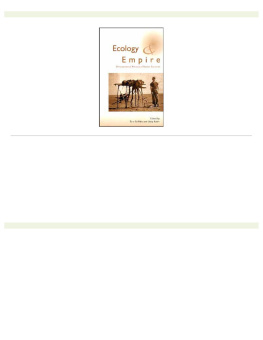

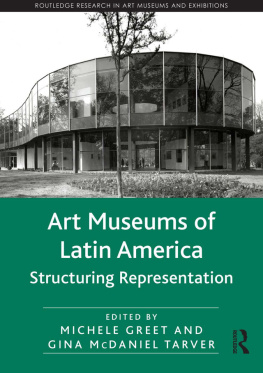
 TM The paper used in this publication meets the minimum requirements of American National Standard for Information Sciences Permanence of Paper for Printed Library Materials, ANSI/NISO Z39.48-1992.
TM The paper used in this publication meets the minimum requirements of American National Standard for Information Sciences Permanence of Paper for Printed Library Materials, ANSI/NISO Z39.48-1992.